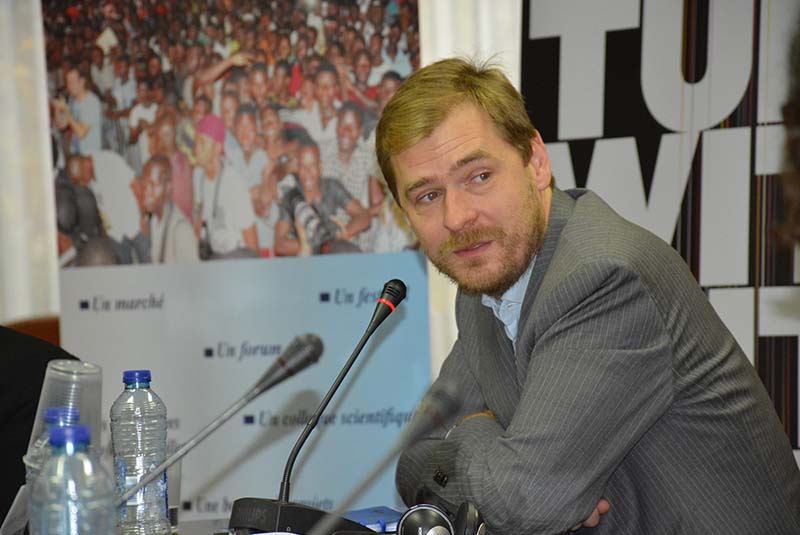
« Why we published this new manual on technical sound reinforcement » Frédéric Jacquemin gives the motivations that prompted his institution to co-edit a new manual of sound systems.
What motivated Africalia to co-edit this new manual of technical sound ?
Our motivation is the result of an observation: an important need to improve the quality of the sound of live performances in Africa. Then, with the talks we had with Zhu Culture, it was also about putting professionals of the spectacle in tune with the new technologies in relation to the stakes of artistic performance. Quickly, this brought up the topic of the potential employment that this type of work allows to realize. With the training of the Mayitikou brothers, you have access to a job market that is still underestimated.
Seriously speaking, which innovation does this new manual bring compare to the previous one ?
First, there is an update of the content according to the new technologies that have appeared in the digital sound sector or not. The first edition took place in 2009. It was based on a material dating from the past. It therefore seemed appropriate to us to make an update in relation to technical developments. But, it is very concrete and very practical. The first edition was in a pike format that was not the most practical when you were really in the heat of cultural action. It did not allow optimal handling. Now, we have done in a spiral form, and therefore you can consult it on the console, put it down and without damaging it. This is the main difference, in terms of presentation and binding.
Which strategy have you put in place for the diffusion of this new manual in Africa ?
We shared the tasks between Africalia and Zhu Culture. Being established in Dakar, Zhu Culture has an exceptional network throughout Africa, including the English-speaking part. We rely heavily on Zhu Culture, who is the co-editor of this book. They know better than we do the hot distribution corners. They take care of that. On our side, when we go to a place, we bring back with us books to distribute and eventually sell them to the cultural operators we meet at the cultural seminars, during support missions in Burkina Faso or Congo.
Africalia now supports MASA. How do you see this partnership ?
The partnership with Masa came from a solicitation from Prof. Yacouba Konaté (General Director of Masa), who had asked us to join the International Artistic Committee. I accepted but I could not do it directly, so I sent my closest collaborator to replace me. We support Masa in relation to its ability to market the creativity of artistic operators in Africa. One of my next priorities will be to strengthen all these platforms of meetings, professionalization and access to the market represented by MASA. The MASA is located here, where we do not have the political mandate to intervene on an Ivorian operator. On the other hand, what we can do is to support creative operators who are in our eight countries of intervention to come in fact to strengthen them and to reach a pan-African market like the MASA.
I find the quality of the partnership interesting. When the MASA comes to Brussels, we handle it carefully. And with the reputation of Africalia, we managed to obtain for the Masa managers, appointments at the level of the European Union, the Belgian authorities, to maintain the position of the MASA at the highest level in the world cultural agenda. That is something we appreciate. We are therefore useful to the MASA, and in return, when we are here, we are lucky to have access to a network of extremely sophisticated operators that are essential for the development of culture in Africa. This happens here at MASA and not elsewhere.

 The MASA is a cultural platform for promoting African Performing Arts. Its main objectives are : To Support creativity and good quality productions, To facilitate the movement of artists and their works within Africa and throughout the world, To train artists and key professionals in the production field, To promote African Performing Arts.
The MASA is a cultural platform for promoting African Performing Arts. Its main objectives are : To Support creativity and good quality productions, To facilitate the movement of artists and their works within Africa and throughout the world, To train artists and key professionals in the production field, To promote African Performing Arts.